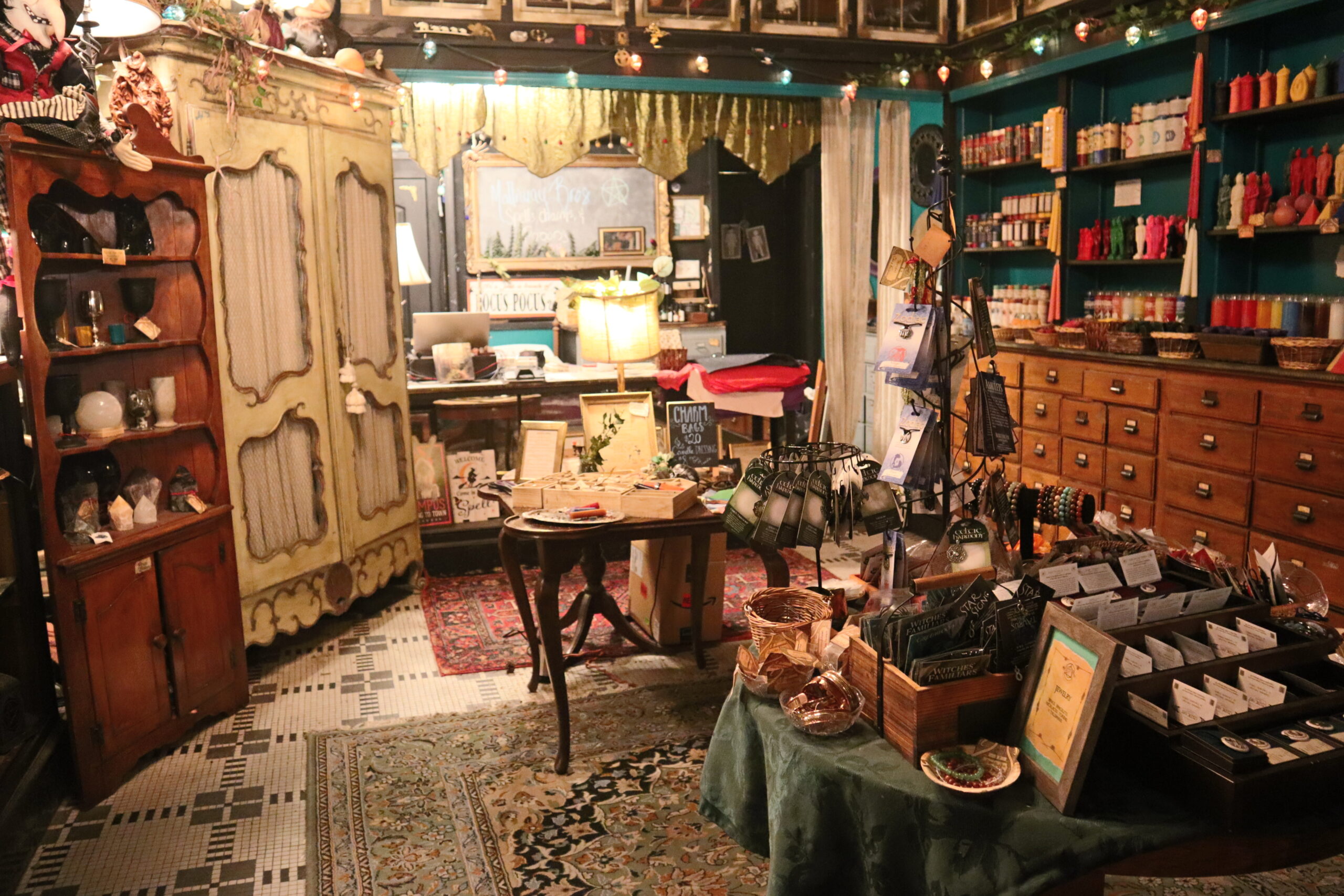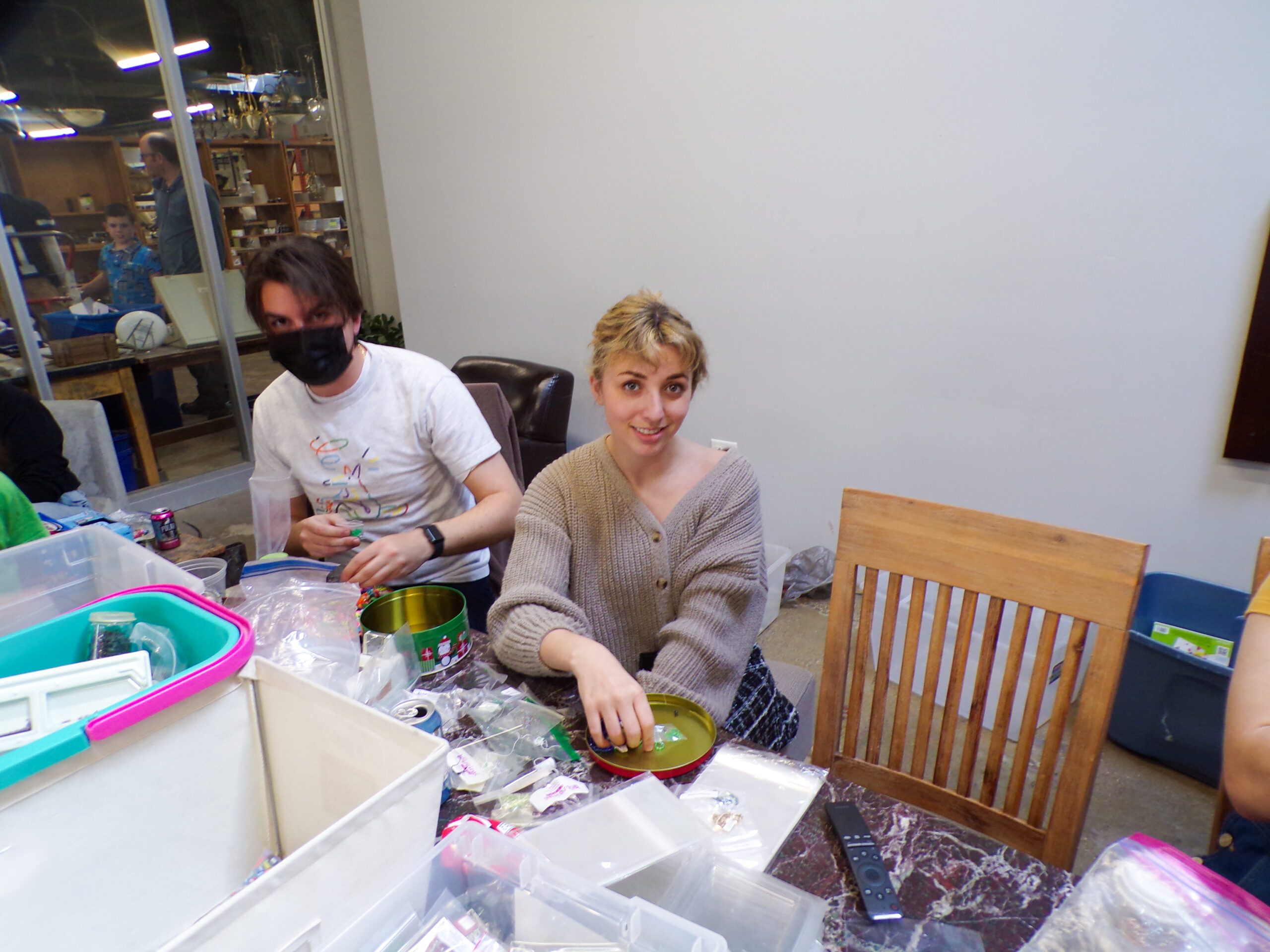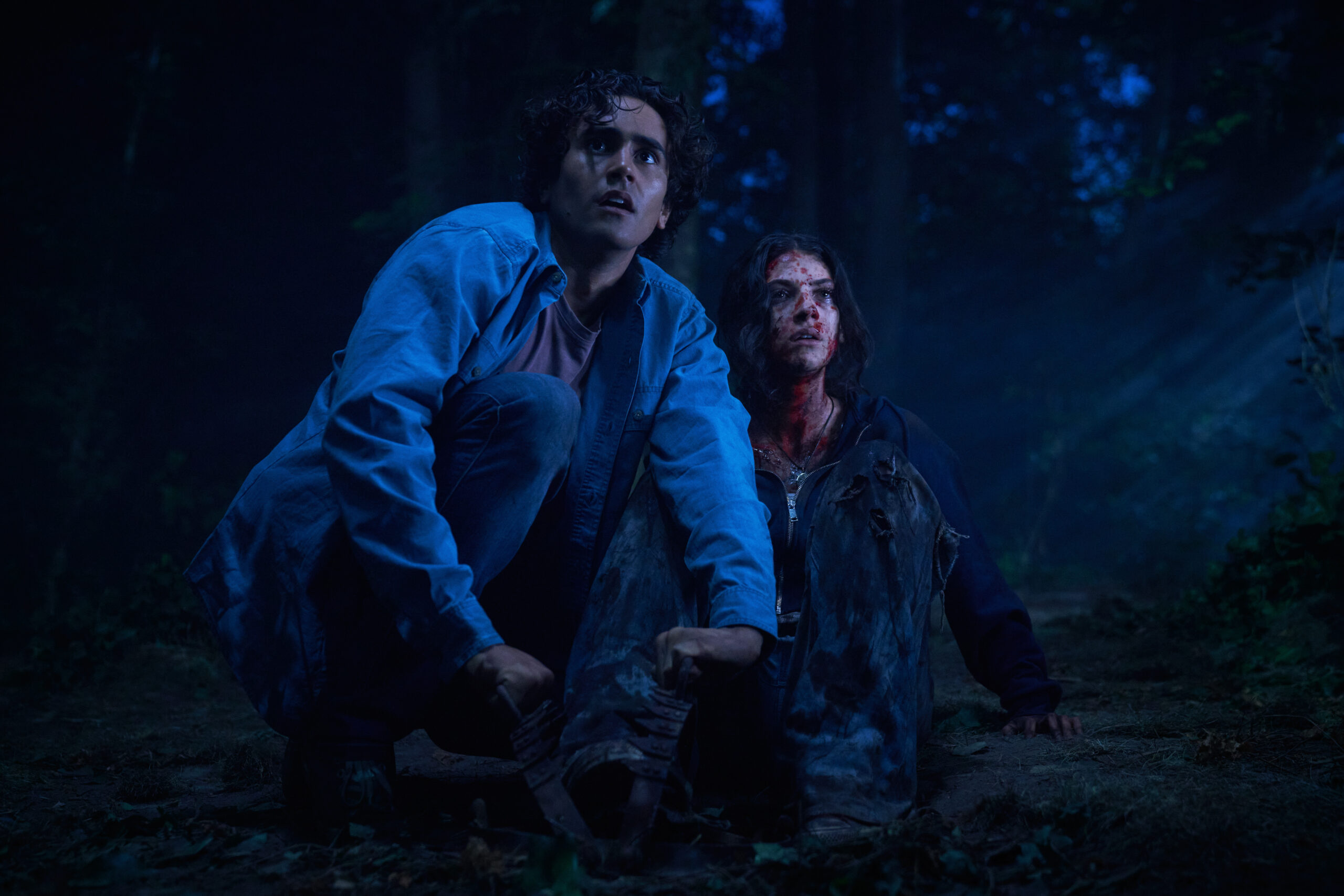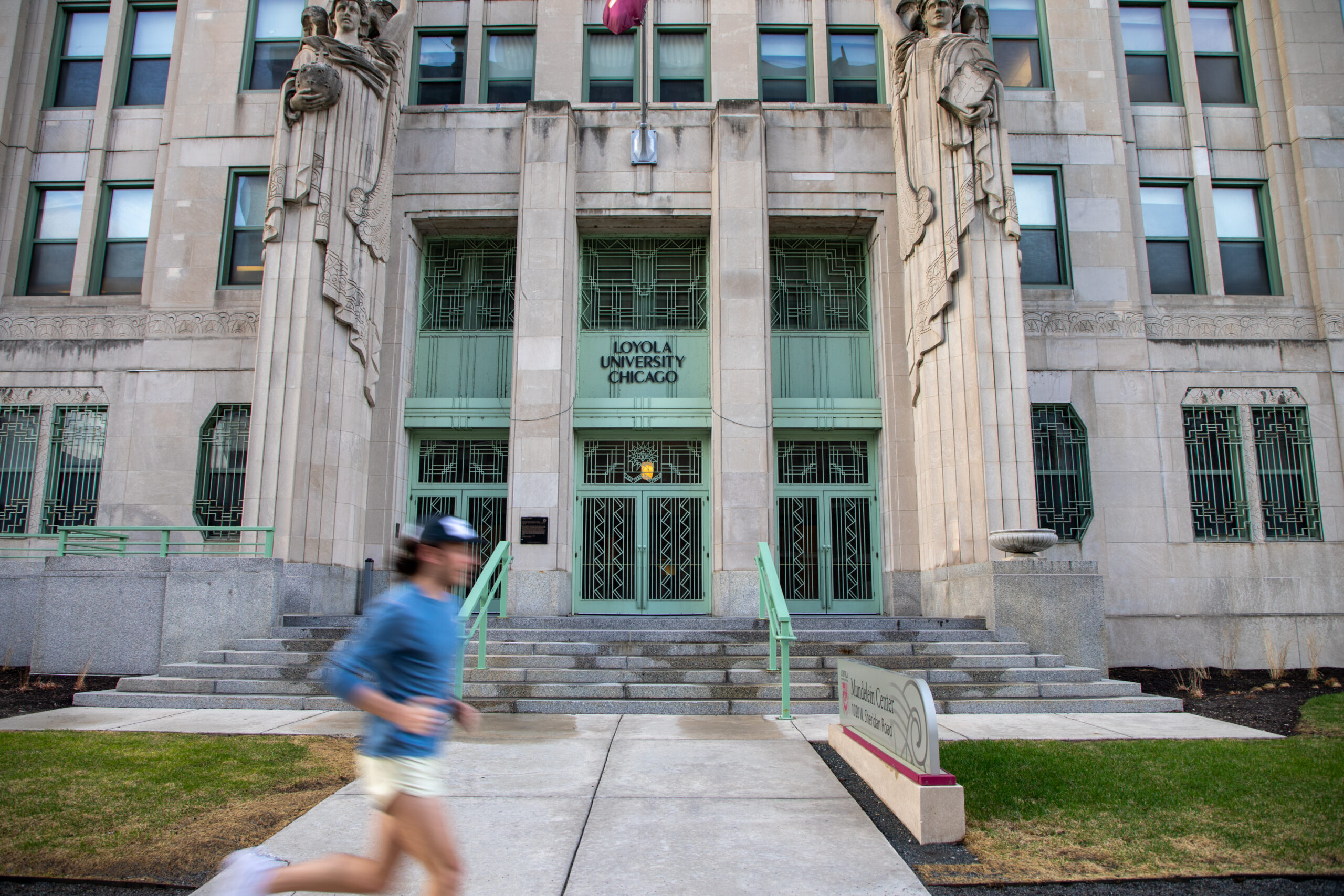Bubbling cauldrons. Meditative movements. Ritualistic chants. The happenings of Malliway Brothers Shop occur at 5:30 p.m. every Sunday — after closing time.
Bubbling cauldrons. Meditative movements. Ritualistic chants. The happenings of Malliway Brothers Shop occur at 5:30 p.m. every Sunday — after closing time.
While the store is inaccessible to regular folk, two exterior banners illuminated by spirited candlelight reveal an alternate message — “Welcome witches.”
Sibling store owners Wycke and Blake Malliway said they opened their shop, located at 1407 W. Morse Ave., in 2019 with the goal of fostering a community of outcast Chicago witches. On Sunday nights, practicing witches “call the coven” in a gathering to empower desires for the upcoming week, enchant objects and connect with others.
For skeptical spectators, the scene is unexpected. But for the group of 14, it’s standard weekend practice.
“There’s power in going against the ordinary,” Blake Malliway said.
“That’s what witches are — the unordinary,” Wycke Malliway added.
From harboring pet toads to making spells from shampoo, the pair said they’ve known they were magical since early childhood but didn’t accept witchy labels until adolescence. Blake Malliway said magical awakenings occurred as early as age 11 when a school friend drew a pentagram on his hand, exclaiming, “There, you’re a witch now.”
“It was such a stupid, weird thing but in that moment, everything clicked,” Blake Malliway said.
Interrupting him mid-interview was a sudden burst of flickering overhead lights, prompting him to ask others in the room if they noted the magic playing out before them.
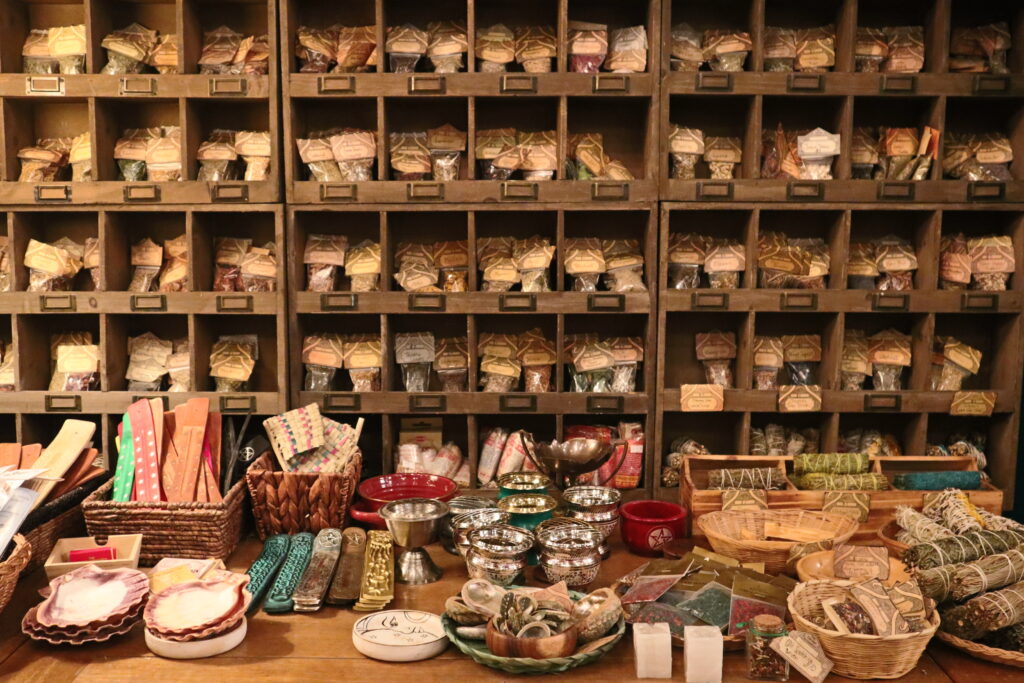
Loyola class of 2010 alumnus Kate H., who asked her last name be omitted for privacy reasons, said she always had an artistic appreciation for fairytale fables and Halloween. Eventually, she thought-out how to bring fairytales to real life.
After stumbling upon Alchemy Arts Occult Supply (1203 W. Bryn Mawr Ave.) while attending Loyola, she began calling herself a witch after a shopper asked her what she magically identified as.
“You don’t have to have a certain proficiency to earn the title,” Kate said. “You just have to own the title.”
But the perfect brew for magical awakenings doesn’t seem to exist. The actualization of one’s witch identity can come in childhood, adolescence or adulthood.
Monica Gamez, an oncologist and regular Sunday night coven attendee, said she struggled with depression and anxiety for years. Plagued by emptiness, she said she was dissatisfied by her ineffective remedies of therapy and medication.
Turning to her love of creative writing, she fell into witchcraft after deciding the main character of her fiction novel would double as a doctor and a witch. What resulted was the concoction of her own spell for personal healing — witchery.
“The more I started looking for it, I was like, ‘I like this, I like witchcraft,’” Gamez said. “Then I found the Malliway brothers and I started attending their courses and rituals and I was like, ‘This is it, this is where I belong.’”
With “WitchTok” platforming magic on TikTok, Kate said she worries the Westernization of witchcraft will erase the origins of the practice which trace as early as the Bible, according to BBC.
“Social media witchcraft, especially in the United States, tends to be dominated by white witches,” Kate said, citing the co-opting of Hindu chakras and indigenous beliefs of spirit animals. “We can’t pretend we don’t know about these things, but we also need to let people from whom those things are a part of their culture take lead on how we talk about them and use them.”
Kate said a lacking “BIPOC” presence within many witch circles serves as a struggle for the community.
Non-fiction author and publicist for the shop Kenneth Johnson has research backgrounds in myth and folklore. He also specializes in the spiritual practice of Shamanism, an ancient physical and psychological process in which a person is called to magic by a vision or a dream, often involving a death and rebirth experience, according to Johnson.
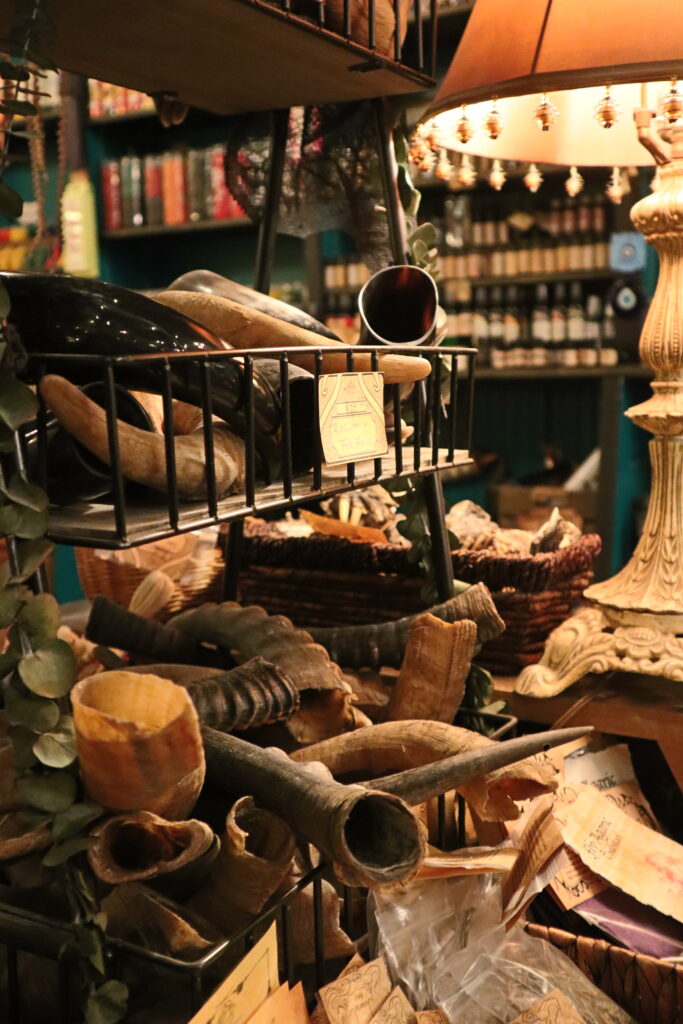
Studying early material from European witch trials, Johnson found that most modern witchcraft evolved from Shamanism.
“Most of our perception is purely and historically untrue,” Johnson, 70, said. “It in itself is a legend, and a fairly recent one.”
Johnson, who spent years in Momostenango, Guatemala, observed a compromise between “modern” Catholic paganism and those practicing pre-Christian, ancient Mayan spiritualism.
The tempering of ancient practices in Guatemala can be attributed to the internet, according to Johnson.
“The fading and diminishment of ancient ways is caused by internet and cell phones, which don’t display in the native Mayonic language — only in Spanish,” Johnson said.
But what does magic off TikTok look like? Generally, witches draw upon a spiritual connection to the Earth, harnessing its capabilities to evoke change through age-old practices or individualized inventions.
With a medical background and a passion for health, Gamez said she quickly came to trust the combination of science and witchcraft.
When her daughter became sick with COVID-19 and the flu at once, the 42-year-old armed her household with prescribed treatments, as well as her own immunity elixir of honey and tea with elderberries. She said instead of recovering for three weeks, her daughter only suffered for one.
“Science and nature cannot fight each other,” Gamez said. “I was on so many psychiatric medications, therapy. Nothing worked until I was at peace with nature and my witchy self.”
But not everyone has been receptive to Gamez’s witch identity. While chaperoning a school field trip, the mom of three said she felt the disapproval of other parents when her daughter announced to the class that her “mom is a witch.”
For the Malliway brothers, subtle judgment from skeptics and doubters is an enduring aspect of witch culture.
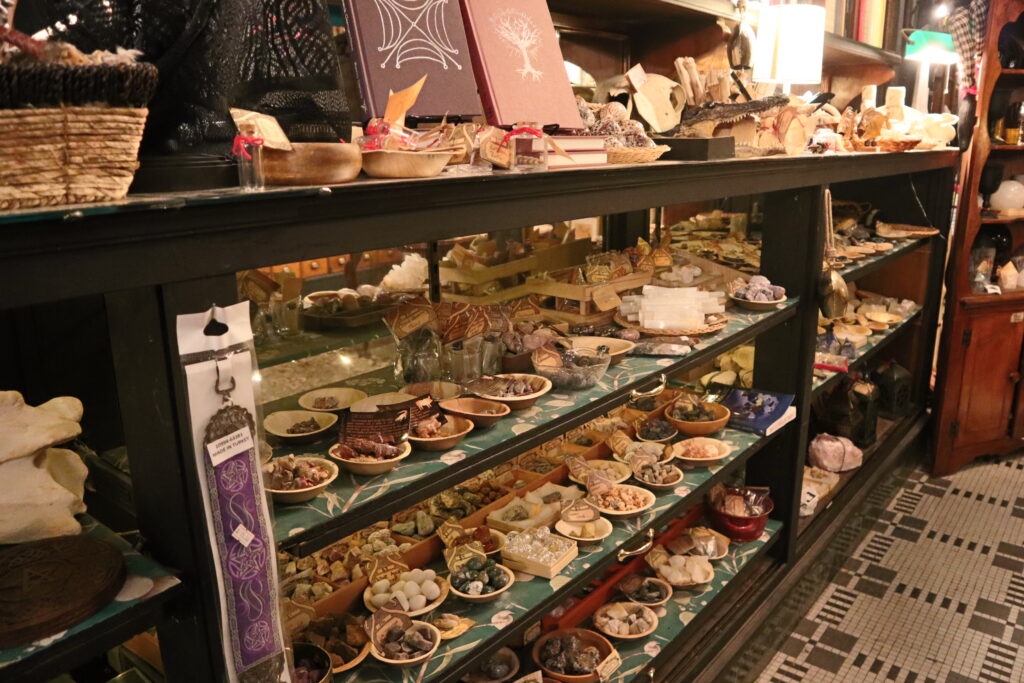
“What I usually get is skepticism or just killing the vibe,” Wycke Malliway said. “Compared to what people used to get in the 1400s, I’m not complaining, but it does make me more wary of who I can tell this stuff to, because I don’t want to feel like I have to defend my beliefs to you.”
Yet, for some witches, the apprehensions of others only strengthen the community, segregating magical believers from the rest.
“Anybody can be wicken, anybody can follow religion, anybody can follow a spiritual practice, but I don’t think everybody can be a witch,” Blake said. “If everybody could cast spells to manifest all of their deepest desires, they would be stupid not to. I don’t think some people have the brain for it.”
The impacts of a reactive outside world are minimal inside the magic shop. Alongside shelves of animal bones, skulls and spellbooks, a community flourishes and prevails, channeling their shared experiences for good.
“They are open minded and don’t judge you, and that’s what I’ve been looking for — people that dont judge you because you’re a little bit different,” Gamez said.
With more than 2,000 members in their group on the social platform Meetup, the store has garnered attention from witches throughout the city.
“I think that’s the prettiest part of it,” Wycke said, “Especially since we’re in Chicago, where it’s such a potluck of people, you get that potluck of magic.”
Featured image by Hanna Houser | The Phoenix

